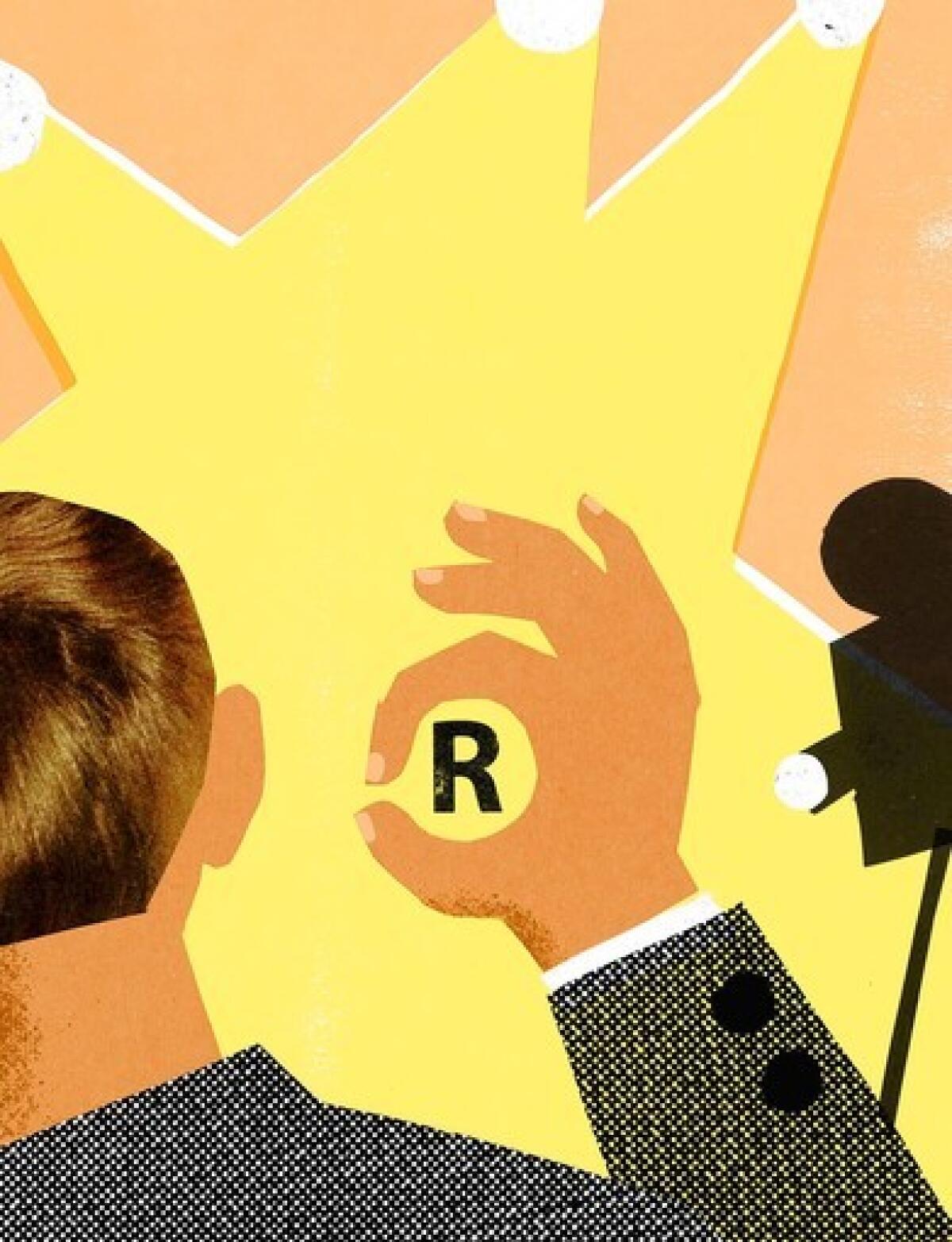A turn, a snap, a fall: Signatures of the stars

- Share via
Jack Nicholson called them “Dernsies.” At least, he did when referring to Bruce Dern, the “Nebraska” star who appeared in the 1971 film “Drive, He Said,” which Nicholson directed. So what are “Dernsies”?
“It’s not something I set out to do and not something I plan to do,” says Dern. “It’s just something the character comes up with that the screenwriter did not put on the page. An interjection or snapping my fingers down at my side. I did that in ‘Drive, He Said’ to let everyone know this basketball coach I was playing had a little game. It’s just embroidery that enhanced the story — and Nicholson branded them ‘Dernsies.’”
Unquestionably, each actor has his or her own processes when it comes to getting into character, and often they’re looking for common ground between themselves and the role they play. And in that act of blending themselves with the role, it’s not surprising that a little unscripted personality emerges. In a recent interview for the South China Morning Post, actor Sam Neill reported that he had what he called a “signature,” in which he always did a 360-degree turn in his films; he added that his “A Cry in the Dark” co-star Meryl Streep told him about a signature she put in every film: She falls over once.
Whether this is desirable behavior and what actually constitutes an actor’s signature (and whether it’s actually traceable to every film) draws a variety of responses from various performers in awards-bound films this year. “12 Years a Slave’s” Sarah Paulson was startled by the idea: “Trying to do something you do in every movie you do is one of the most bananas things I have ever heard.”
That said, she admitted that being in the moment in a scene with her character means she doesn’t plot out every gesture or move. “I don’t think there’s anything I’ve ever done that’s a ‘Sarah Paulson-ism.’ But, of course, you’re using yourself and your experiences, and you’re bringing you to the table. Every character I play is going to have a lisp because I have a lisp.”
Still, her “12 Years” costar Alfre Woodard had a different take on what might be a personal signature: She laughs in every film. “I never go through a project, whether it’s a film or I’m doing an arc on television and I don’t care how tragic it is, I will find time to laugh. It’s my business to find a place for it.”
Many actors do have behaviors that repeat, says acting coach Doug Warhit, who points out that much of Al Pacino’s methods in his first film, “Panic in Needle Park,” echo in “Dog Day Afternoon,” and that actors including Robert De Niro, Woody Allen and Clint Eastwood have mannerisms that repeat in many roles.
“Good actors create a marriage between themselves and the character,” says Warhit. “But I wouldn’t want a signature that I’d repeat — I would see that as a problem rather than an asset. It’s like being a magician — I don’t want you to know how I do my tricks. I want you immersed in the whole experience.”
VIDEO: Highlights from the Envelope Screening Series
“Dallas Buyers Club” costar Jared Leto believes that “movie stars” are more likely to have affectations or manners, if not literal signatures, that emerge in their roles — and that’s not a criticism, he says. “Movie stars are people whose typical or innate characteristics are so strong that they can’t possibly escape them,” Leto says. “Some people on screen, they bring the part to them — they don’t go to the part. Maybe someday I’ll be that charming on film.”
Even for actors who don’t consciously insert behavior into their roles, there’s the suspicion that sometimes they do repeat themselves; “Lone Survivor’s” Mark Wahlberg said that “I think I have a tendency to always bring some personal connection to the part,” then chuckled that there may be a recurrent theme in his work: “Usually I’m kicking someone’s ass or getting the ... kicked out of me.”
And as for “Frances Ha’s” Greta Gerwig, if she has a “Dernsie” of her own, she doesn’t want to know: “My own space continuum would collapse if I became aware of it.”
But newcomer Lupita Nyong’o, whose first major role out of Yale Drama was in “12 Years,” says she remembers a similar discussion in her acting class. “Some of my classmates had signatures, some had pacts — there were two students in the class above me who would always do something when the other person was watching them in their show,” she says. “It keeps everything alive and adventurous. But it’s never something that’s prescribed, just something people do.
“As human beings, we all have secrets,” Nyong’o added. “That’s what makes us interesting — there’s something happening in our eyes. It lets us be human, in that moment.”
More to Read
Only good movies
Get the Indie Focus newsletter, Mark Olsen's weekly guide to the world of cinema.
You may occasionally receive promotional content from the Los Angeles Times.










